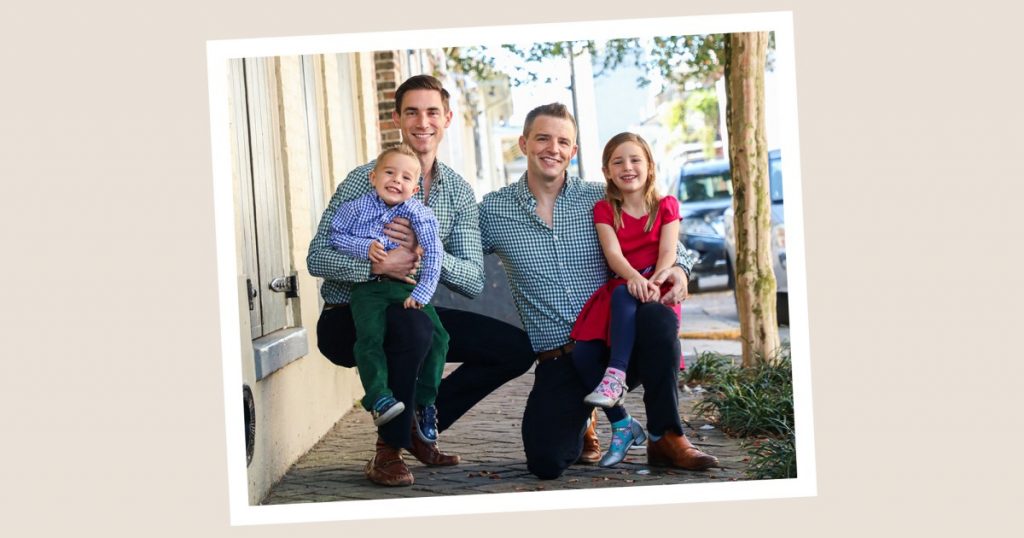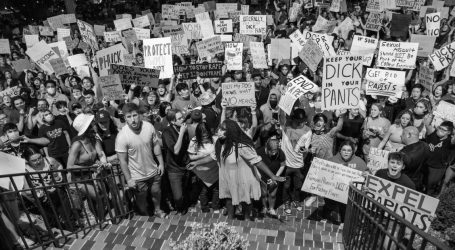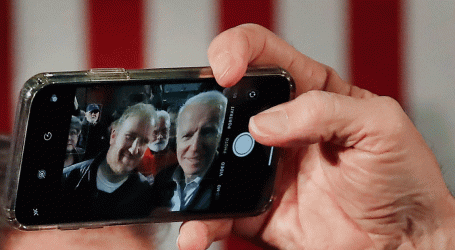One of Louisiana’s Only Pediatric Heart Transplant Doctors Is Moving Because of Anti-LGBTQ Laws
Courtesy of Jake Kleinmahon
Fight disinformation: Sign up for the free Mother Jones Daily newsletter and follow the news that matters.In 2007, Dr. Jake Kleinmahon left Westchester, New York, to move to New Orleans and attend medical school at Tulane University. Drawn by the opportunity to help rebuild the city’s medical system in the aftermath of Hurricane Katrina, he eventually became medical director of Ochsner Hospital for Children’s pediatric heart transplant, heart failure and ventricular assist device programs. He met and married his husband, Tom, a Michigan-born chemical engineer for Shell. They have two children, a 4- and a 6-year-old. But after years of building a life in New Orleans, the family is leaving the state at the end of the month over discriminatory anti-LGBTQ laws coming out of the Republican-controlled legislature.
In early June, state lawmakers passed a series of bills, including so-called “Don’t Say Gay” legislation barring public school teachers from discussing gender identity and sexuality in the classroom; a ban on gender-affirming care for transgender minors; and a measure prohibiting school employees from using a student’s preferred pronoun without parental permission. Democratic Gov. John Bel Edwards vetoed the bills, but the Republican supermajority legislature has since moved to override the veto and enact the ban trans youth health care. The legislation, the governor said, “needlessly harms a very small population of vulnerable children, their families, and their health care professionals.”
Mother Jones spoke with Dr. Kleinmahon on Wednesday about his decision to leave Louisiana and the potential impact of a “brain drain” on the state:
On becoming a doctor: I knew I wanted to be a pediatrician since I was 4 years old. There are no doctors in my family, but I had an amazing pediatrician and he was such an inspiring and kind man. I admired the amount of knowledge he had and the way he treated me and the rest of my family with such compassion. When I was a teenager, I began volunteering at our local ambulance corps. I became an emergency medical technician. And then, after college, I went off to medical school at Tulane.
On practicing in Louisiana: During medical school, I had the opportunity to work in volunteer clinics where medical students saw the patients, and then they discussed the patients with an attending physician and came up with a plan for the patients. There were so many opportunities to do this throughout the city because of the lack of medical homes and primary care centers that were online at this point. So we were really able to make an impact in the medical system by having these volunteer clinics that patients only had to pay a very nominal fee for. The other part was that there still weren’t a ton of medical professionals who came back to the city after Katrina, so when I was rotating in the emergency room, I was doing things that medical students at other institutions sometimes don’t get to do, such as being involved in the trauma team, suturing up facial lacerations, and really inserting yourself as part of the team. Sometimes they were so short-staffed that they needed extra hands to help out.
On being a pediatric cardiologist: I subspecialize in pediatric heart transplant, kids with heart failure or abnormal heart muscle, kids who need mechanical devices to help their hearts pump, such as left ventricular assist devices. I also specialize in pediatric pulmonary hypertension or high blood pressure in the lungs. One of the things I love about my practice is that I get to see such a wide variety of patients. I’m able to walk alongside a family who’s going through a very difficult time and help guide them, providing the best medicine out there. I’m really able to connect with these families and build strong relationships with the patients and their families.
The Louisiana legislatures anti LGBTQ legislation is driving a highly specialized pediatric doctor, in New Orleans, to leave the state with his family. pic.twitter.com/zQEVTuZf5G
— David Begnaud (@DavidBegnaud) July 30, 2023
On leaving Louisiana: Our plans were to stay and retire in New Orleans and raise our family here. We really put roots down here. We’ve become involved in the community and are very happy here. Over the last year, as more and more anti-LGBTQ legislation has been put forth and some of it passed, we’ve realized that the state legislature of Louisiana as a whole does not care about our family and does not care about the LGBTQ community. It was most striking when the Louisiana Senate Education Committee was discussing House Bill 466, which is a “Don’t Say Gay” bill. My husband and I watched that livestream, and when the people who were against the passage of that bill spoke, the Republican lawmakers walked out of the room and had no interest in hearing about the impact that this would have on children and the community. That hearing and seeing the passage of three anti-LGBTQ bills in Louisiana—all three were vetoed, but one of them did ultimately pass— that was the breaking point for us. We said, we have to put our family first.
On the state legislature: While I recognize that I am one of a few providers in this state that provides the specialized care, at some point it has to become a two-way street. Louisiana has to support us, and it was clear that that wasn’t going to happen. Our children deserve to grow up in a place where our family is supported, where the government around them is supportive, and we don’t have to worry about waking up each morning and looking at the news to see what anti-LGBTQ legislation has been brought forth overnight.
I think it’s important to note that the people behind these bills, they market these bills as bills to save children. Now, I actually save children and I know what it means to save a child. I know what it means to support a child and support our own children. None of these bills have anything to do with saving children. What the people behind these bills fail to realize is the ramifications of putting forth bills like this. Because I am not the only one who is leaving the state. My husband, who is a senior chemical engineer, will be leaving this state. We have other friends who have left or are thinking about leaving as well. These are people who add a lot to this state and to New Orleans and have worked really hard to make this place as good as it possibly can be.
On the impact of his departure: For the entire state of Louisiana, and actually Mississippi as well, there are only three of us who are heart transplant and heart failure physicians working at an active pediatric heart transplant center. We are the only center in both of those states with an active transplant program. I’m also one of two fellowship-trained physicians in pediatric pulmonary hypertension or high blood pressure in the lungs. And a large portion of our population are kids who are born prematurely.
I’m very proud of the program that we’ve built at Ochsner Hospital for Children, and my leaving will not change the success of our pediatric heart transplant program. We have two incredible pediatric heart failure and heart transplant cardiologists that will be staying. But my patients feel it. I have had so many families, patients, moms, dads, grandparents, and uncles cry or call my office crying when they find out that I’m leaving because of the relationships that we’ve built over the years. I’ve been so fortunate to be trusted by these people and to be able to take care of their children. This is one of the hardest things that I’ve ever had to do. It is absolutely heartbreaking thinking about leaving my patients who many of them really rely on me.
On what’s next: One of the criticisms I’ve gotten in the last couple of days is, I can’t believe you’re leaving all these poor kids behind while you’re going off to a place that already has a lot of medical professionals. What I’ll say to that is, I came here and I came back here after a fellowship to dedicate my career to Louisiana. And Louisiana pushed me out. If there’s blame to be placed, it should be on all of those legislators who have voted for these types of discriminatory and hateful laws. I’m going to start a heart transplant program on Long Island, New York, where there are no heart transplant programs. Just because I’m no longer serving the kids of Louisiana, there are still people out there who do need my expertise and do need my help.
It’s hard feeling like you have to flee your own state. I never thought in my lifetime in the United States that I would not feel welcome in whatever state I lived in. It’s sad. It brings up all kinds of emotions. But what I’m going to continue to do is to keep fighting for people of underserved communities, to fight hateful legislation, and to share our story in hopes that somebody hears it and it does make a little bit of a difference.
This interview has been edited for length and clarity.




